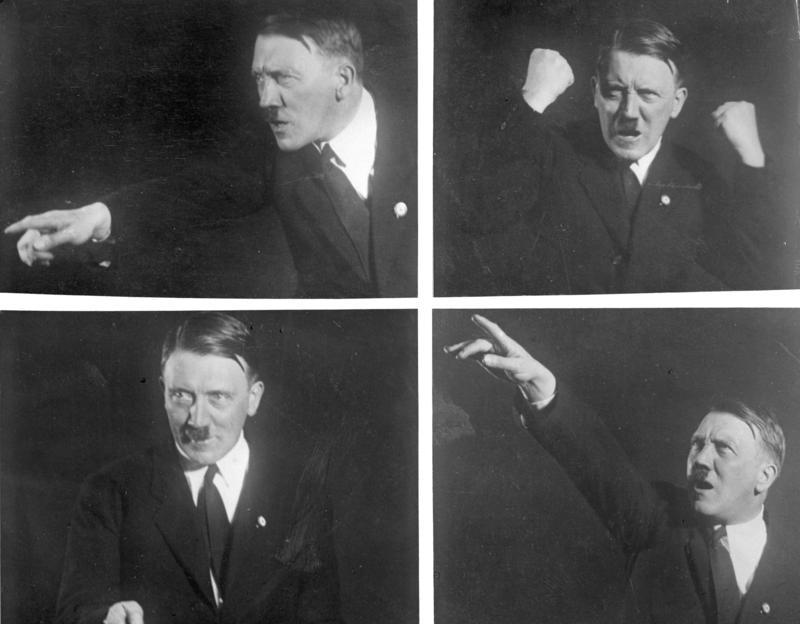- HOBBIES
Gryffindor Traits


Throughout history, the phenomenon of dictatorship has left an indelible mark on the world, influencing political landscapes, societal structures, and international relations. Famous dictators have emerged in various eras, wielding power through a combination of charisma, strategic acumen, and often brutal force. Their legacies are complex, marked by both development and devastation. This article delves into the lives and impacts of some of the most famous dictators, examining their rise to power, their governing methods, and the lasting effects they have had on their nations and the world.
Several dictators have left a profound impact on history, their actions altering the course of nations and the lives of millions. Among these, figures like Julius Caesar, Napoleon Bonaparte, and Adolf Hitler stand out for their significant roles in shaping world events.
Julius Caesar, a pivotal figure in Roman history, transformed the Roman Republic into the Roman Empire. His military conquests and centralization of power paved the way for a new era of imperial rule. Similarly, Napoleon Bonaparte rose to prominence in the aftermath of the French Revolution, expanding French territories through a series of military campaigns that reshaped Europe.
Adolf Hitler, perhaps one of the most infamous dictators, led Germany into World War II and orchestrated the Holocaust, leaving a lasting scar on human history. His authoritarian regime was characterized by aggressive expansionism and severe human rights violations.
The 20th century saw the emergence of numerous dictators who capitalized on political instability and societal upheaval to secure power. This era was marked by the rise of totalitarian regimes in various parts of the world.
Joseph Stalin, who led the Soviet Union from the mid-1920s until his death in 1953, implemented policies that transformed Soviet society but at a tremendous human cost. His regime was notorious for widespread purges, forced labor camps, and severe repression.
In Italy, Benito Mussolini established a fascist state, promoting nationalism and militarism. His alliance with Nazi Germany during World War II further entrenched his dictatorial rule.
In Asia, Mao Zedong led the People’s Republic of China through radical reforms and the Cultural Revolution, which sought to enforce communist ideology but resulted in widespread suffering and loss of life.
Dictatorships have often been synonymous with human rights violations, as authoritarian leaders prioritize control over civil liberties. The impact of famous dictators on human rights has been profound and far-reaching.
Under Hitler’s regime, the systematic persecution of Jews and other minorities led to the Holocaust, a genocide that remains one of the darkest chapters in human history. Similarly, Stalin’s purges resulted in the imprisonment and execution of millions, stifling dissent and creating a climate of fear.
In more recent history, leaders like Saddam Hussein in Iraq and Muammar Gaddafi in Libya demonstrated how dictatorships can suppress political opposition and manipulate state resources for personal gain, often at the expense of their citizens’ freedoms and well-being.
The Soviet Union was home to some of the most notorious dictators of the 20th century, whose policies and actions had significant domestic and international repercussions. Joseph Stalin’s rule is characterized by the Great Purge, a campaign of political repression that targeted perceived enemies within the Communist Party and beyond.
Nikita Khrushchev, who succeeded Stalin, attempted to de-Stalinize the Soviet Union, but his leadership was marked by the Cuban Missile Crisis, which brought the world to the brink of nuclear war. His successor, Leonid Brezhnev, presided over a period of stagnation, during which the Soviet Union maintained its authoritarian grip while facing economic challenges.
These leaders left a complex legacy, with their policies influencing not only the Soviet Union but also the broader Cold War dynamics.
The rule of dictators has often been a catalyst for civil wars and conflicts, as their oppressive regimes provoke resistance and rebellion. In Spain, Francisco Franco’s dictatorship followed a brutal civil war that left deep divisions within the country.
In Africa, Idi Amin’s tyrannical rule in Uganda led to widespread human rights abuses and economic decline, contributing to ongoing instability in the region. Similarly, in the Democratic Republic of Congo, Mobutu Sese Seko’s long reign was marked by corruption and conflict, leaving a legacy of turmoil.
The impact of dictators on civil wars and conflicts underscores the destructive potential of authoritarian governance, where power is concentrated in the hands of a single ruler or party.
In the contemporary world, the concept of dictatorship continues to evolve, with some leaders adopting authoritarian practices while maintaining a facade of democracy. This hybrid form of governance poses new challenges for global politics and human rights.
Leaders like Vladimir Putin in Russia and Recep Tayyip Erdoğan in Turkey have been accused of eroding democratic institutions while consolidating power. These modern dictatorships often utilize technology and media control to manipulate public perception and suppress dissent.
As the world grapples with these challenges, understanding the historical context of dictatorship is crucial for evaluating current political dynamics and advocating for democratic principles.
The political ideologies of dictators have varied widely, influencing their policies and the nature of their regimes. Fascism, communism, and military dictatorship have all served as frameworks for authoritarian rule.
Benito Mussolini’s fascism emphasized nationalism and authoritarian control, while Adolf Hitler’s Nazism combined fascist principles with a racially motivated agenda. In contrast, communist dictators like Mao Zedong and Fidel Castro pursued revolutionary socialism, aiming to establish a classless society through radical reforms.
Military dictators, such as Augusto Pinochet in Chile and Francisco Franco in Spain, often justified their rule as a means of restoring order and stability, though their regimes were marked by repression and human rights abuses.
These ideological foundations have shaped the policies and actions of dictators, leaving a lasting impact on their countries and the world.